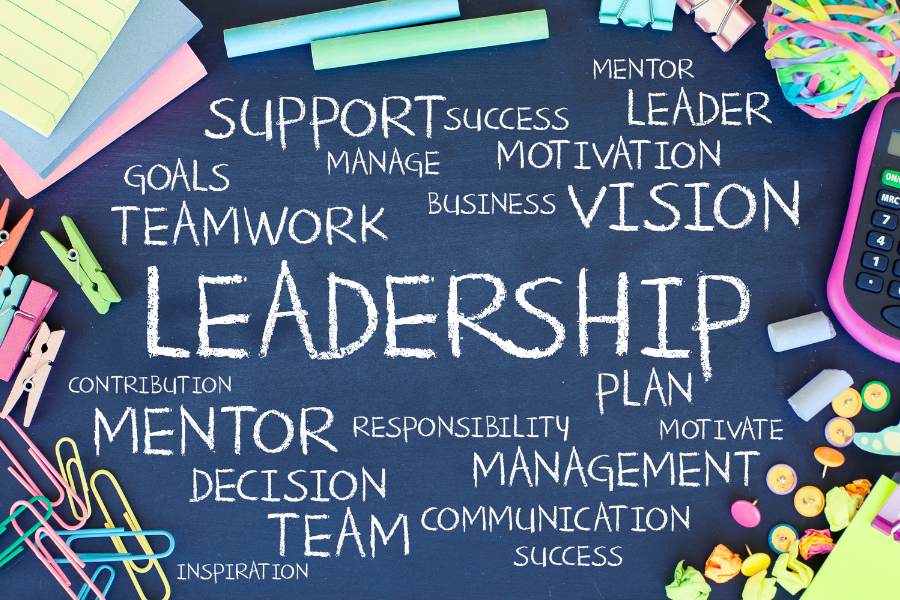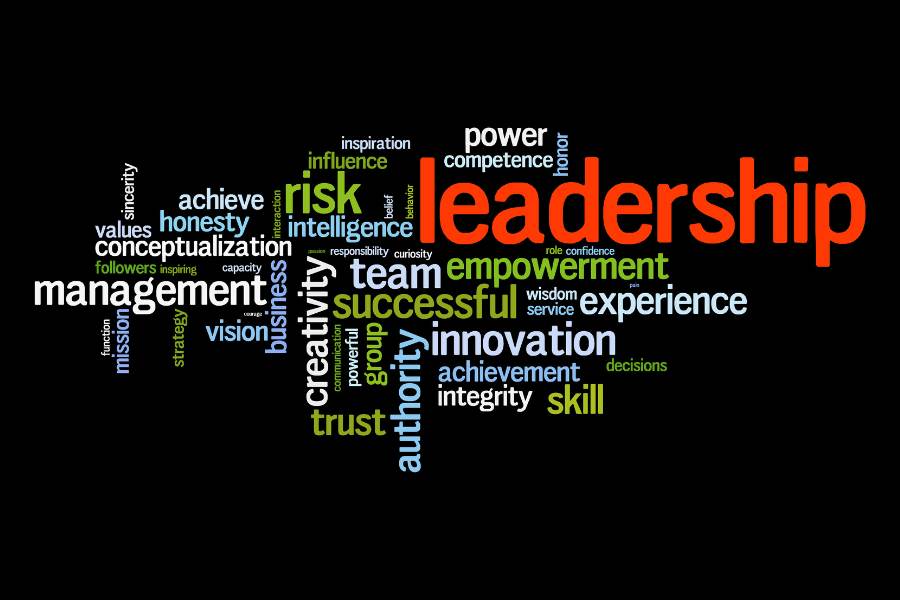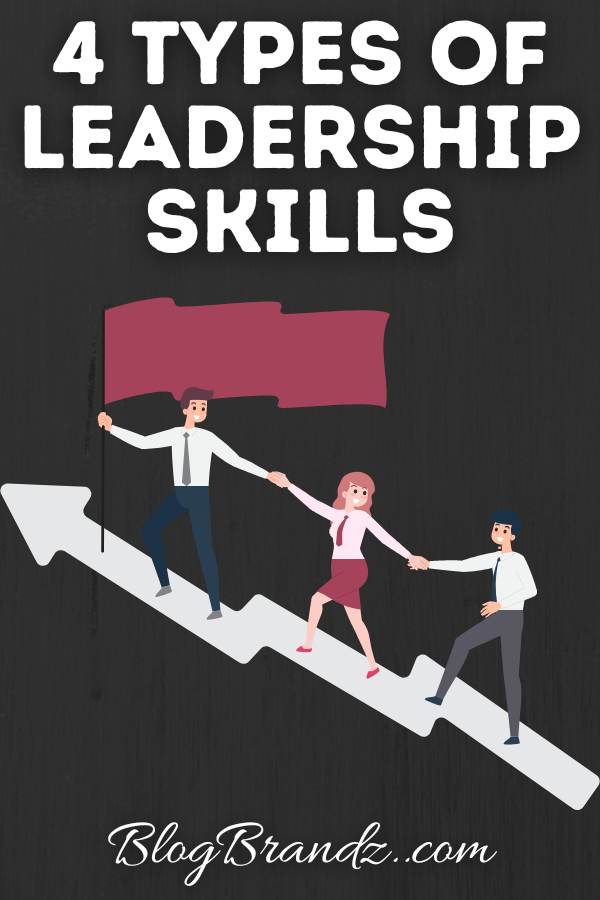Learn the key leadership skills to develop in future leaders or entrepreneurs so you can build a highly successful and profitable organization.
Contents
- Why are leadership skills important?
- Are leadership skills inherent or learned?
- What are leadership skills vs qualities?
- How can leadership skills contribute to career advancement?
- How can leadership skills be developed?
- What are the 5 good qualities of a leader?
- What are the 4 types of leadership skills?
- 7 key leadership skills for future leaders to develop
- Why should organizations invest in leadership development?
Why are leadership skills important?
Leadership skills are important for any situation, whether in the workplace or in other areas of life. Leadership is about being a good role model and leading by example.
Leaders have the responsibility to motivate, inspire, and guide their team while making sure everything in the organization is running smoothly.
Having strong leadership skills makes it easier for people to work together and accomplish tasks more efficiently. Developing stellar leadership skills can help you build strong teams and maintain collaborative relationships within teams.
Effective leaders can also help resolve conflicts quickly and effectively – something that requires excellent communication and team leadership skills.
Leadership skills are important because they can help you build a successful organization where everyone works together towards a common vision and goal.
Are leadership skills inherent or learned?
Leadership skills can be both inherent and learned. Some people have a natural ability to lead, while others need to learn how to do it.
Those who are born with innate leadership qualities tend to be confident in their decisions, work well with others, and take initiative. They also possess the ability to think strategically, delegate tasks appropriately, and provide inspiring motivation.
On the other hand, those who learn how to be leaders must first recognize their strengths and weaknesses before developing their skills through practice and experience.
They can benefit from leadership training, as well as learning from mentors. Ultimately, whether someone is an inherent or learned leader depends on their individual personality type and environment.
What are leadership skills vs qualities?
Leadership skills and qualities are two different concepts. Leadership skills refer to the specific abilities a person has that enable them to lead others effectively.
Leadership qualities, on the other hand, refer to innate personal leadership traits such as confidence, courage, integrity, humility, and the ability to motivate others.
Leadership skills can be learned and developed over time, while leadership qualities are more innate characteristics of a person. Both leadership skills and qualities are important components of successful leadership.
However, leaders need to become aware of which skills and qualities they possess. This will help them assess their own strengths and weaknesses so they know which leadership skills to learn and improve on.
If you’re a fast learner who is determined to learn leadership skills and qualities, you’ll soon be on your way to becoming an effective leader.
How can leadership skills contribute to career advancement?
If you want to start learning skills for a job interview, learning leadership skills for employment can be incredibly beneficial in helping to advance your career.
People who are strong leaders are often seen as go-getters and innovators, which can help you stand out among your peers and colleagues when seeking career advancement opportunities.
By displaying strong leadership qualities in the workplace, you can demonstrate a dedication to taking initiative and responsibility for your work. This shows that you have the potential to take on more challenging roles and responsibilities within a company or organization.
Having good interpersonal skills means that you’re able to work well with others and motivate them toward success. Strong problem-solving skills allow you to quickly identify issues and come up with solutions to guide the team forward.
How can leadership skills be developed?
To develop leadership skills, start with developing active listening skills and learning to empathize with others. This means looking at things through the eyes of those around you to understand different points of view.
Developing a positive attitude and setting achievable goals are important leadership skills to develop because they will help build your self-confidence and motivate team members.
Learning from failure is an important part of developing leadership skills. By reflecting on past experiences and using them to inform current decisions, you can become a more effective leader.
You can learn leadership skills online to an extent, but people management skills take time and experience to develop, so becoming a leader should be a long-term goal of continuous and lifelong learning.
What are the 5 good qualities of a leader?
Leadership qualities are the traits and characteristics that enable a leader to guide, motivate, and inspire others to reach their goals.
The five most important, good qualities of a leader are integrity, vision, confidence, communication, and resilience.
- Integrity is the foundation of good leadership because it compels you to be honest in all situations without compromising your ethics or values.
- Vision is the ability to set long-term goals and create a clear pathway toward achieving them.
- Confidence is vital for any leader as having faith in oneself and one’s decisions is a prerequisite for inspiring trust in others.
- Communication is an essential skill for leaders as they need the ability to effectively communicate their thoughts and opinions in a way that others understand them.
- Resilience is an essential leadership trait and encompasses several skills, including emotional self-regulation, the ability to remain calm under pressure, bounce back after failure or setbacks, and persevere through difficult times.
Learn how to control your emotions, be composed, and stay calm under pressure so you can start building resilience at work and be a resilient leader.
What are the 4 types of leadership skills?
There are four main types of leadership skills: interpersonal, problem-solving, decision-making, and communication.
- Interpersonal skills help you work well with others, build relationships, and motivate team members.
- Problem-solving skills help you identify problems, come up with solutions, and then implement them.
- Decision-making skills require the ability to make sound decisions based on facts and data while understanding the implications of those decisions.
- Communication skills are key to effective leadership as they will help you effectively communicate your vision and goals to your team members ensuring that everyone is working towards the same goal.
Leadership skills are vital for any business or organization to succeed, so leaders need to hone these four types of leadership skills to be successful.
7 key leadership skills for future leaders to develop
Leadership skills and soft skills are some of the most important 21st-century skills for students to develop as future leaders. This leadership skills list includes the best skills to develop if you want to grow in your career.
#1. Communication skills
Communication skills are some of the key skills for jobs of the future. These soft skills can help you in any personal or professional situation, and make a huge difference in your relationships with others.
Being able to communicate effectively will enhance your team leadership skills as it helps you express yourself clearly and accurately, create meaningful connections with people, and resolve conflicts.
Good communication requires active listening, understanding nonverbal cues, being able to express your thoughts and feelings, managing emotions and stress, being patient and respectful, and staying open-minded.
The Confident Body Language course will teach you powerful, confident body language gestures to help you improve your nonverbal communication in business, project more confidence at work, and feel more confident in business.
Assertive communication is a critical skill for future leaders, new managers, and people who are introverted in social situations. The Assertive Communication Skills Masterclass will show you how to tell people what you truly think and feel, so you can set boundaries when you need to.
In an age where most of us communicate online via email, Slack, and social media, it’s also important to elevate your written business communications and develop excellent business writing skills by learning how to write clearly and concisely.
Working on developing strong communication skills can help you improve all areas of your life from personal relationships to professional success. Having effective communication skills is an invaluable asset that will serve you well throughout your life.
#2. Decision-making skills
Good decision-making skills help leaders make sound decisions and reduce the risk of mistakes. This requires you to improve your problem-solving abilities, analytical thinking, and the ability to weigh the pros and cons of an issue.
Making decisions means being able to identify a problem or situation, come up with solutions and evaluate them, consider different options, assess risks and possible outcomes, maintain focus on the goal while being flexible if needed, and finally take action.
A good decision-maker is usually confident in their decisions and able to explain why they chose certain options. However, many skilled leaders, like Richard Branson and Jack Welch, tend to use their intuition to make decisions based on gut feelings.
#4. Strategic thinking skills
Strategic thinking skills are essential for success in any business. They allow individuals to define a goal, plan to achieve it, and analyze the results.
Strategic thinkers can identify opportunities and create innovative solutions that will help the organization reach its objectives. They also possess the ability to think critically and objectively about different scenarios, so they can come up with the best possible decision.
With strategic thinking skills, leaders can also devise strategies that will help them navigate difficult situations and make informed decisions. This type of leadership skill is essential for business growth and development, as well as for improving overall performance.
#4. Delegation skills
Delegation skills are essential for any manager or leader, as it allows them to assign tasks and manage their own workload, and that of their team, more efficiently.
You can start developing good delegation skills by understanding the strengths and weaknesses of each team member and allocating tasks accordingly. It is also important to provide clear instructions and set expectations so that everyone knows what they need to do.
Offering feedback on work performance can help team members learn from their mistakes and become better at their tasks. Providing support and guidance when needed helps build trust and creates a sense of responsibility in each individual.
By following these steps, leadership and management can develop effective delegation skills and create a productive working environment.
#7. Creative problem-solving skills
One way to develop creative problem-solving skills is by practicing creative thinking and brainstorming.
When faced with a problem, try to come up with as many possible solutions as you can – even if some of them seem far-fetched. This will help you think outside the box when trying to solve problems.
It helps to have an open mind when approaching problem-solving and be willing to explore different ideas and solutions. It’s also important to practice critical thinking to evaluate the pros and cons of each solution before making a decision.
With practice, your creative problem-solving skills will improve over time and you’ll be able to come up with more effective solutions for any challenge you face.
#6. Mentoring & motivating others
Mentoring and motivating others are important people skills to develop. There are many different methods for motivating people, and it is important to understand what motivates each individual person.
If you’re interested in becoming a leader who mentors and motivates others, it can help to learn the skills of a facilitator. You can also draw on personal experiences to understand how certain things have motivated you in the past and how you can apply them in your current situation.
Doing leadership development courses or business MasterClasses by highly successful leaders can also help you develop the skills necessary to motivate and mentor your team.
#7. Emotional intelligence and empathy
Learning emotional intelligence skills can be a challenging, yet rewarding endeavor. It is one of the soft skills that improve with time and experience and requires a deep level of self-awareness as well.
It helps to first understand the definition of emotional intelligence to know what emotional intelligence is and how it can help improve your interpersonal relationships.
Learn the tools necessary to develop emotional intelligence, calm anxiety, manage your emotions, feel resilient and capable of dealing with life’s stresses, and develop mindfulness in this Emotional Intelligence course.
Managing conflict involves using skills such as rapport, empathy, and listening. This Conflict Management with Emotional Intelligence course will improve your communication skills to manage conflict and develop emotional intelligence in the workplace.
Renowned psychotherapist, Esther Perel’s MasterClass, will help you learn the power and art of connecting with others, and show you how to create, develop, and maintain deeper, more meaningful connections with everyone in your life.
Empathy is a highly-valued leadership trait. Learning emotional intelligence will help you better identify and manage your own emotions, as well as empathize with others.
In this MasterClass on Empathy, you’ll learn how to exercise, cultivate, and promote empathy to connect with others on a deeper, more human level.
Reading books, listening to podcasts, or taking online courses on emotional intelligence and building interpersonal relationships can all be beneficial for building empathetic leadership skills.
Why should organizations invest in leadership development?
Leadership development is a key factor in the success of any organization, so investing in leadership programs for employees and executives should be a priority for companies that are committed to building future leaders.
By helping their executives develop strong leadership skills, organizations can ensure that they are equipped with the tools and knowledge needed to effectively lead their teams and make sound decisions.
Leadership development also helps to foster an environment of collaboration, innovation, and productivity. It enables individuals to become more confident in their abilities and better able to motivate those around them.
Investing in leadership training programs for employees can help organizations develop innovative strategies that will help them remain competitive in the industry.
Fostering a sense of community and trust among teammates is beneficial to workflow and productivity. Leaders need training in inclusive leadership skills to create an atmosphere where people’s differences are celebrated and new ideas can flourish.
Leadership activities and training can help employees build good leadership skills, create a positive atmosphere, inspire people to work together and bring out the best in everyone.
Leaders also need to understand the importance of diversity and inclusion and nurture women in leadership to ensure that every voice is heard and respected to build a successful team.
In today’s business world, effective leadership skills are essential for success. By cultivating these leadership skills and qualities, future leaders can successfully guide their organizations to become inclusive, profitable, and great places to work.
© 2022 – 2024, Priya Florence Shah. All rights reserved.
Priya Florence Shah is a bestselling author and an award-winning blogger. Check out Devi2Diva, her book on emotional self-care for women. In her spare time, Priya writes science-fiction novels and poetry and chills with her two-legged and four-legged kids.
Discover more from Business & Branding Tips
Subscribe to get the latest posts sent to your email.



















